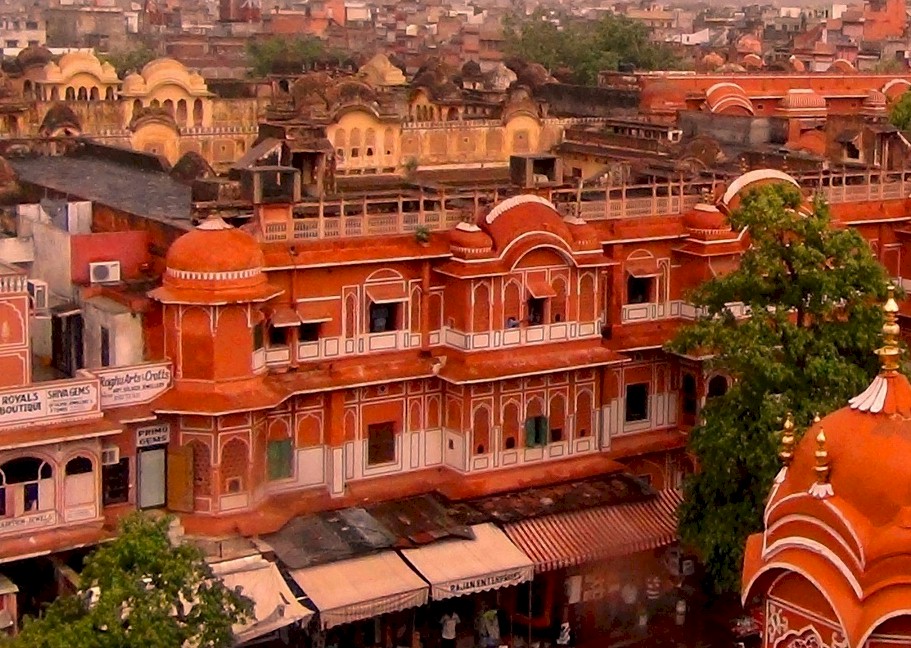BAZAARS OF JAIPUR
A brilliant colorful explosion of flowers, elephants, ox carts, and wares! The traveller will smell the deep aroma of spices in canvas bags, the fetid smell of animals and open sewers, the sweet waft of tea, and the crusty acrid burn of dust and exhaust. The noise is chaotic, the people constantly will stare if you are a Westerner and anybody who has something to sell will try to sell it to you, repeatedly. Watch cobras dance out of their wicker baskets, and don't be too surprised if the snake charmer slaps his cobra for having a wayward eye. Be prepared to be asked for money if you plan to take photographs of snake-charmers, beggars etc.
Johari Bazaar - Jaipur is a major center of jewelry production, and is especially known for precious, semi-precious stones and traditionally designed jewelry. The best place to purchase them is at Johari Bazaar, the jeweler's market of the city. Various necklaces, pendants,earrings, rings, bracelets and other pieces of jewelry, made of gold studded with precious stones like diamonds, emeralds, rubies and pearls are displayed to mesmerize you with their sheer beauty and glitter.
'Kundan' jewelry is the specialty of Jaipur city. It requires expertise and sophisticated skill, only practiced by seasoned 'kundansaz' (those who make Kundan jewelry). The art of cutting and polishing of gems and Minakari or enameling are other skills for which the city is world famous. It is because of these skills that Jaipur is known as the 'Gem City' of India. Hard and rough precious and semi-precious stones are given shape, smoothness and are cut here while ensuring that not a part of the expensive gem is wasted. The bazaar has many shops where original and precious stones can be purchased, however you should have prior knowledge about the stones you want to purchase for a better deal. Johari Bazaar is open on all days, though a part of the bazaar is closed on Sunday and Tuesday.
Bapu Bazaar and Nehru Bazaar Do visit the Bapu Bazaar or Nehru Bazaar to get the popular 'Mojri' footwear!!! Made up of soft camel leather and artistically embroidered, the footwear is available in vibrant colors and that too at comparatively low prices. Locally called as 'Juti', the footwear is known for comfort and durability. Apart from this both the bazaar has many shops dealing in fabrics and sari along with a variety of original leather goods like bags and purses and local perfumes and trinkets. Bapu Bazaar is located within the old city area between the Sanganeri Gate and New Gate while Nehru Bazaar lies on the western side of Bapu Bazaar till the Ajmeri Gate. Nehru bazaar closes on Tuesday while Bapu Bazaar closes on Sunday.
Kishanpol Bazaar Kishanpol Bazaar is the famous market of the city known for textiles and wooden furniture. Running parallel to Baba Harish Chandra Marg and Chaura Rasta, this bazaar is a special place to buy Bandhani textiles. Bandhani or tie & dye is a skillful art practiced in Jaipur on a large scale. The fabrics are tied into small knots using threads and are dipped into an array of beautiful colors. After dyeing these knotted parts remain uncolored creating different designs and patterns. The popular patterns are mothda, the chequered design, lahariya, the diagonal strips, shakari, the human and animal figures and ekdali, the design of small circles and squares.
